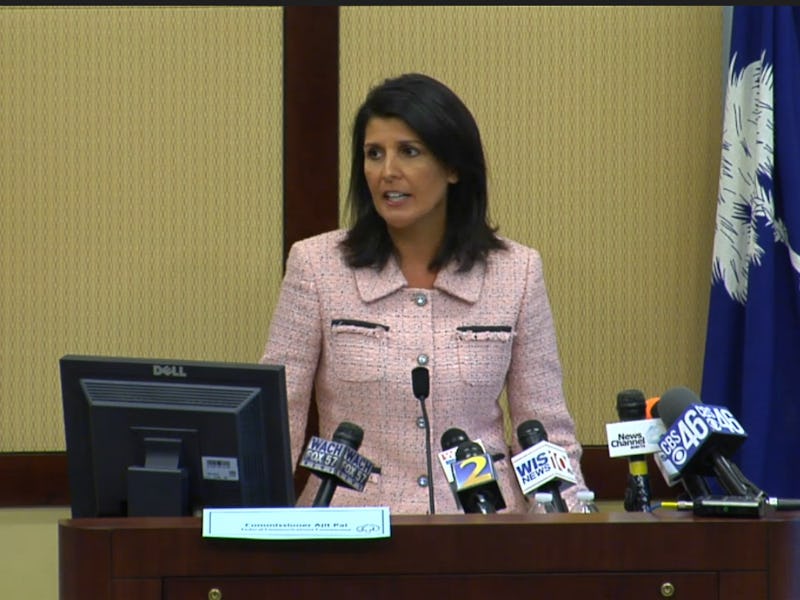Nikki Haley Wants to Illegally Jam Cell Phone Networks in South Carolina Prisons
The FCC can’t take action on jamming technology, but Congress can.

Republican FCC Commissioner Ajit Pai held a hearing with Republican South Carolina Governor Nikki Haley Wednesday to learn more about the problems caused by prisoners obtaining contraband cell phones. During the streamed meeting, the governor solicited her state as a testing ground for cell phone blocking technology, which is currently illegal.
During the hearing, Pai said 35,000 calls and texts were made from contraband cell phones between 2008 and 2009, and Haley noted that she has 900 open correctional officer positions she can’t fill because they are scared for their safety and that of their families. What do the two statistics have to do with each other?
In 2010, Captain Robert Johnson, who appeared with Pai and Haley at the hearing, was the target of an attack orchestrated by an inmate with access to a cell phone. Johnson had angered inmates by repeatedly breaking up their illegal drug- and cell phone-trafficking operations, but it was a smuggled cell phone that helped prisoners retaliate against him.
Johnson miraculously survived an attack in which he was shot six times in the chest by a former inmate and hitman, who was hired by the traffickers still behind bars.
Captain Robert Johnson recounts the attack on his life during a panel hosted by Governor Nikki Haley.
It’s incidents such as Johnson’s, as well as many other examples the panel spoke of, that have Pai looking to come up with solutions for this problem, including more device detectors and thermal cameras that can detect incoming drones before they can drop off airborne contraband.
While Commissioner Pai didn’t go as far as to call for illegal cell phone blocking technology, Haley made it clear she would welcome a pilot program in South Carolina prisons.
In 2010, the FCC laid out four reasons why the commission is unable to allow cell phone blocking technology in prisons:
1. It’s illegal
The Communications Act prohibits non-Federal entities from using cell jammers. The FCC cannot waive this statutory prohibition absent a change in the law by Congress.
2. Interference with public safety
The commission argues that the jamming technology interferes with 911 calls, critical radio signals, and other emergency communications. In 2010, the commission found that the technology could not demonstrate that these systems would not face interference.
3. Homeland security threat
The proliferation of this technology could pose a threat if and when it gets into the wrong hands.
4. Cost
The commission found that jamming technology is more expensive and harder to develop than “other technologies” that may have the same benefits.
Congress would ultimately have to take action for any jamming technology to come into play, but Pai used the hearing to talk with a couple panels of experts from technology and correctional industries to hear solutions toward which the FCC could actually take action.
FCC Commissioner Ajit Pai makes his opening statements at a panel on contraband cell phones.